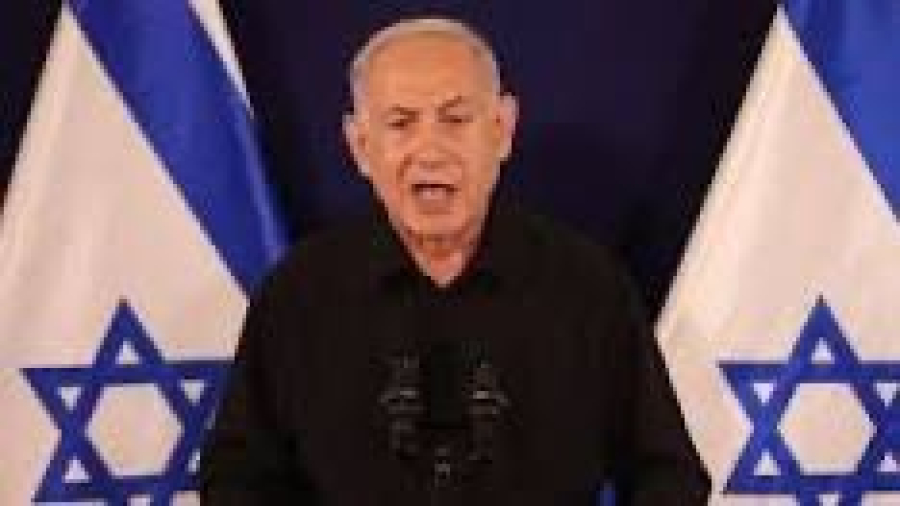Israel’s army chief, Lieutenant General Herzi Halevi, has instructed soldiers to prepare for a potential ground offensive against Hezbollah in Lebanon as tensions between the two sides continue to escalate.
The announcement was made on Wednesday, as Israel’s air force conducted extensive strikes across Lebanon, resulting in heavy casualties.
“We are attacking all day, both to prepare the ground for the possibility of your entry, but also to continue striking Hezbollah,” Halevi told a tank brigade, according to a statement from the military.
Lebanon’s Health Minister reported that the strikes on Wednesday alone killed 51 people and injured 223, with many of the victims located in areas outside Hezbollah’s traditional strongholds.
In response to the Israeli attacks, Hezbollah claimed responsibility for targeting Israel’s Mossad spy agency near Tel Aviv with a ballistic missile. This marked the first time in nearly a year that Hezbollah had used such weapons, as cross-border clashes intensified following the Gaza conflict. Israel retaliated by targeting 60 Hezbollah intelligence sites among hundreds of other Hezbollah positions across Lebanon.
These developments follow the deadliest day of violence in Lebanon since the country’s civil war (1975-90), with Israeli air raids on Monday killing at least 558 people. The ongoing airstrikes have displaced tens of thousands of people across the region, according to the United Nations.
Nour Hamad, a 22-year-old student from Baalbek, described the intense fear residents are enduring. “We spent four or five days without sleep, not knowing if we will wake up in the morning,” she said.
In Tel Aviv, sirens sounded following Hezbollah’s missile strike. Hedva Fadlon, a 61-year-old resident, expressed the anxiety felt by many. “The situation is difficult. We feel the pressure and the tension… I don’t think anyone in the world would like to live like this,” she told AFP.
The violence has drawn international concern, with U.S. National Security Council spokesman John Kirby calling Hezbollah’s missile attack “deeply concerning” but urging for diplomacy to de-escalate the situation. “There is still time and space for a diplomatic solution here to de-escalate the tensions and to prevent an all-out war,” Kirby said.
Israel’s military reported striking more than 280 Hezbollah targets on Wednesday, with fighter jets hitting 60 of the group’s intelligence sites. In addition, two Israeli reserve brigades have been called up for “operational missions in the northern arena” to support ongoing combat against Hezbollah forces.
The UN Security Council is set to hold an emergency meeting on the crisis, while UN Secretary-General Antonio Guterres warned of the “critical” situation in Lebanon, expressing concerns that the country is on the brink of another major conflict.
The violence in Lebanon is linked to the broader conflict between Israel and Gaza, with efforts to broker a ceasefire in Gaza still stalled. Israeli Prime Minister Benjamin Netanyahu has vowed to continue the military campaign against Hezbollah. “We will continue to hit Hezbollah… the one who has a missile in his living room and a rocket in his home will not have a home,” Netanyahu stated.
Iran, a key backer of Hezbollah, condemned Israel’s actions, with Supreme Leader Ayatollah Ali Khamenei downplaying the impact of recent strikes on Hezbollah leadership. “Some of the effective and valuable forces of Hezbollah were martyred, which undoubtedly caused damage to Hezbollah, but this was not the sort of damage that could bring the group to its knees,” he said.
The Israel-Lebanon border has experienced frequent clashes over the past year, but the recent violence surged after coordinated blasts blamed on Israel killed dozens in Lebanon. Israel later launched airstrikes on Hezbollah positions in Beirut, killing a top commander and several civilians, adding fuel to an already explosive situation.
The situation remains volatile, as Hezbollah continues to retaliate for Israeli strikes, and Israel ramps up its military operations, keeping the region on edge with the prospect of full-scale war looming ever closer.
